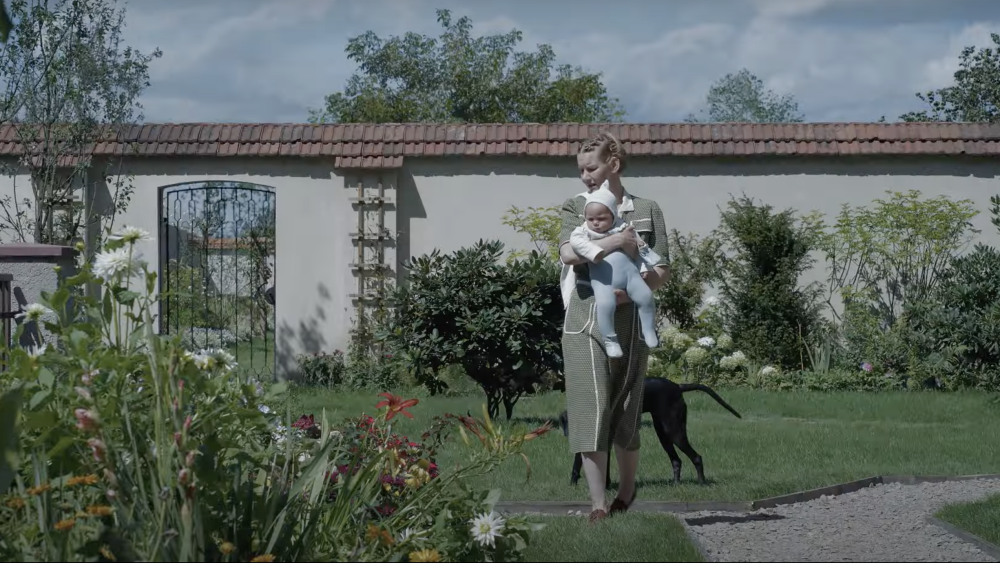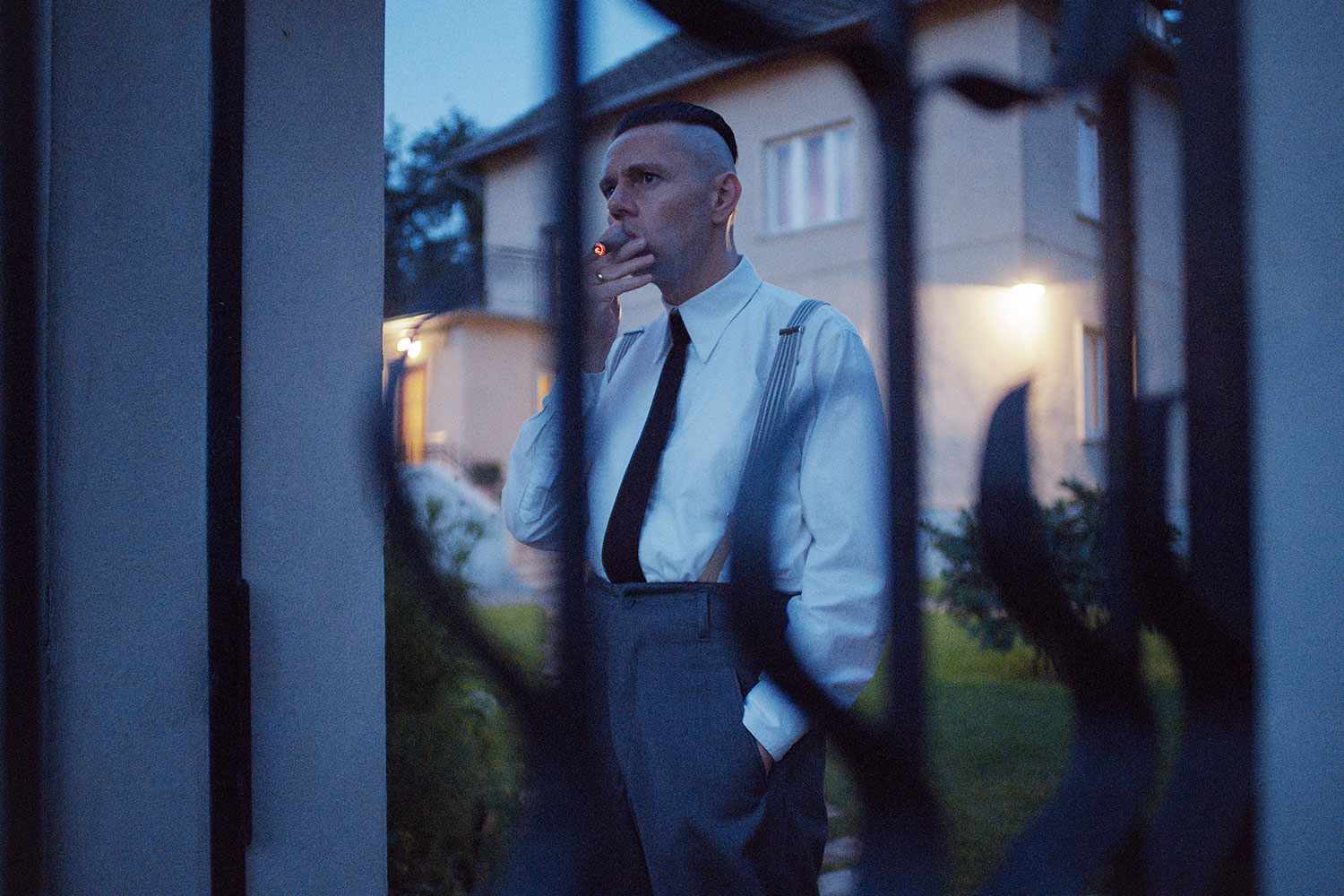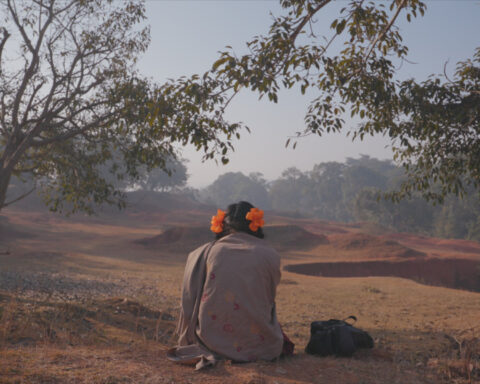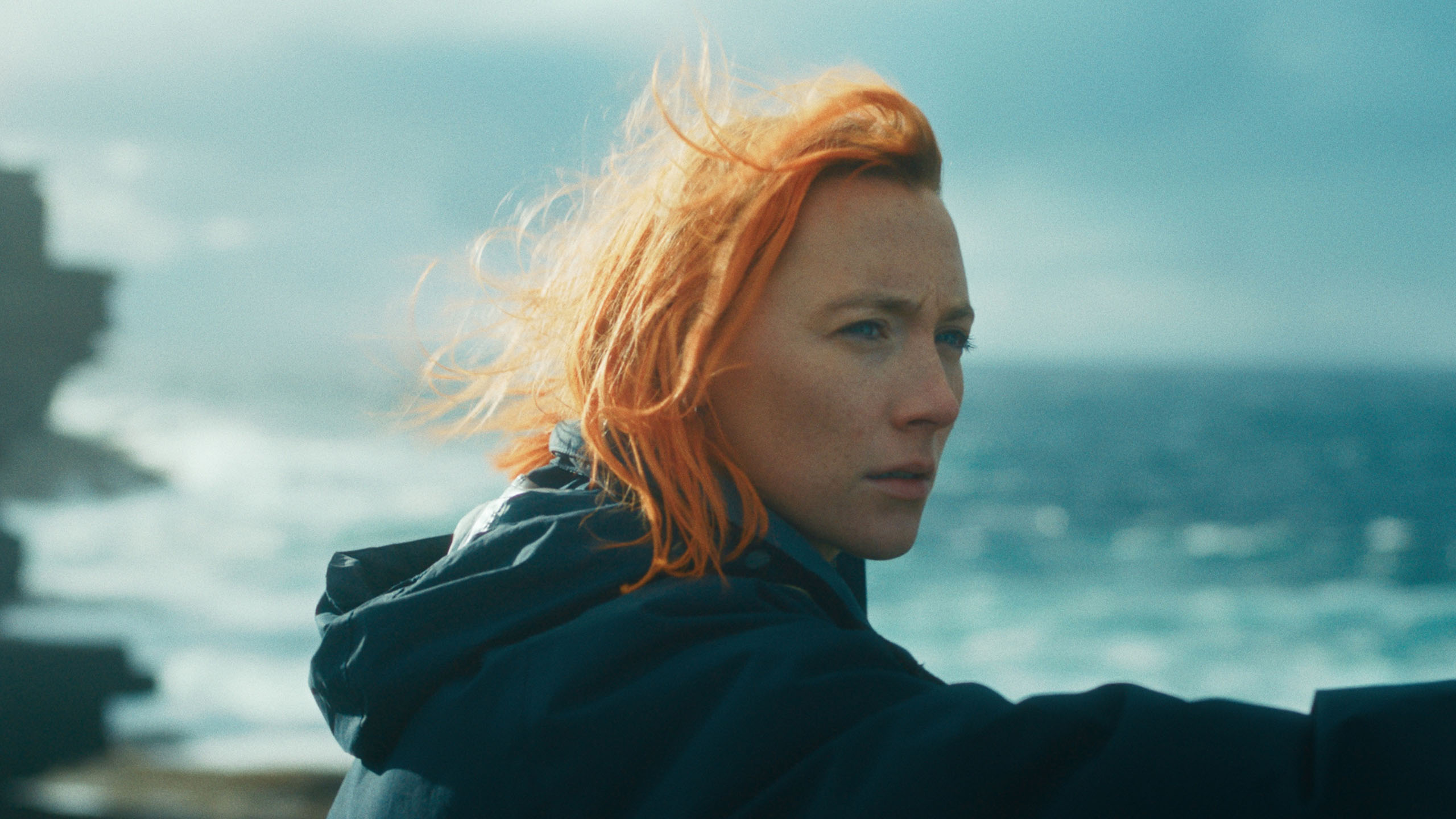You never quite know what you’re going to get when it comes to Jonathan Glazer. The visionary director has an eclectic filmography, ranging from the very British, very profane Sexy Beast, to the atmospheric and alluring Under the Skin. It has been ten years since the latter, but Glazer is back, and this time he’s tackling the Holocaust in what is arguably his most challenging work to date: The Zone of Interest. Telling a story from the perspective of a Nazi commandant presiding over the atrocities of Auschwitz was always going to divide opinion, but one thing’s for sure, this is a story that is impossible to ignore, and ambivalence is not an option.
The Zone of Interest is an intense examination of the infamous Rudolf Höss (Christian Friedel) and his family’s idyllic life, as they take residence in a quaint Polish villa, complete with a perfect garden, swimming pool, and all the luxuries they could want. However, their home lurks in the shadows of Auschwitz, the largest and deadliest concentration camp of the Third Reich. Höss was a high-ranking Nazi official and the longest-serving commandant of Auschwitz during World War II. He played a key role in the implementation of the Holocaust, overseeing the systematic genocide of millions of people.
Naturally, the experience of watching a film like this is incredibly difficult to articulate. Put simply, The Zone of Interest is an unsettling and very, very uncomfortable watch due to the bleak themes at its core. It is rare—and rather admirable—to force your audience to be spectators not only to one of the most distressing periods of human history but to do it all through the lens of the perpetrators. We have often seen the Holocaust through the eyes of the victims, but in Höss and his wife, Hedwig (Sandra Hüller), we must live vicariously as monsters for 105 minutes.

In many ways, The Zone of Interest is a horror film. By employing a chilling score and fear-inducing sound design which includes guttural ambience and a relentless backdrop of screams and gunshots, twinned with visual cues such as smoking chimneys, steam trains, and pitch black darkness, Glazer imbues his work with an overwhelming, constantly lingering sense of dread.
Interestingly—and thankfully—Glazer never actually shows us the horrors of Auschwitz. He doesn’t need to. Instead, just as the implication threatens to transform into a grand, gruesome reveal, he cuts to insert shots of flowers in bloom, a cruel juxtaposition of life and death. Sometimes, that respite is rescinded, replaced by an unnerving cut to black, red, or white in an act of thinly veiled censorship. The whole thing could be accused of being portrayed from a point of neutrality almost, but I don’t think that’s quite the case. We don’t need to be told how to feel, or to be shown the true evil. Just observing the way these people operate is enough to rouse something visceral and instinctive within the audience.
There is no embellishment or creative ego on display here, either. The camerawork feels eerily mechanical and invasive, devoid of any emotion, entirely clinical. It’s a brilliant approach, really, and perfectly reflects the inhuman machinations of Höss and his colleagues. Even the way Höss moves around his home so routinely and methodically presents a striking parallel to the process inside the Auschwitz chambers that the Nazis so meticulously and efficiently planned out, and so callously discuss in the film. Indeed, the mise-en-scene is the opposite of style over substance, with Glazer and cinematographer, Lukasz Zal, producing truly haunting imagery that finds success in the small details. I will find it very difficult indeed to shirk the memory of seeing bones flowing down the river, Höss fixing his shower, or the war criminal looking down on a hall of his peers and fantasizing about all the ways he could exterminate them.
It is this malevolent pride of Höss that underpins the whole film, of course. The casual nature of the way he discusses his plans and his achievements is undeniably sickening, but when you consider this evil alongside the image of his ‘perfect’ family, it’s a dynamic that truly shakes your soul and further exemplifies the film’s underlying, sinister tone. For all of Rudolf’s directness, there is much to be said for Hedwig’s more passive, blissfully ignorant methods. The family lives in a paradise neighboring pure hell, and it is Hedwig’s intense desperation to remain there that drives her husband’s ambitions. Both Hüller and Friedel give terrifyingly good performances here; disquieting in their seeming effortlessness and apathy.

Personally, I found The Zone of Interest to be a gripping exploration of evil, and how deplorable people can become so desensitized to their sins. Admittedly, though, the narrative could be perceived as being a little thin and even repetitive in places. By the end of the first act, we are obviously left in no doubt just how abhorrent these people are, and the remainder of the film largely serves to reinforce this notion. There’s lots of conversation and insinuation, all very cold and sharp, but I would argue Glazer is intentionally creating this barrier between the audience and the subjects, much like the very physical barrier surrounding the Höss household.
I wasn’t particularly sure about the decision to depict a young Polish girl prowling in the dead of night, gathering fruit to hide away for the prisoners of Auschwitz, in a night-vision style. While this was likely a stylistic choice intended to reflect the clandestine nature of her act and give the impression she was under surveillance, the execution was rather jarring compared to the rest of the film.
Bringing a story like this to a conclusion was always going to be difficult, but Glazer offers a masterful climax to his latest work. The way Höss confronts his legacy in the final moments—cleverly intercut with poignant footage from the corridors of modern-day Auschwitz—before he moves forward and descends into the darkness, is simply genius. This is not a redemption story. There is no happy ending. The Zone of Interest is a macabre journey into the past, burdened with a great weight of trauma. It’s not a film you’re likely to want to watch twice, but experiencing it once will be enough to haunt you for life.






